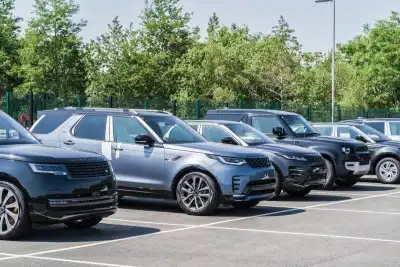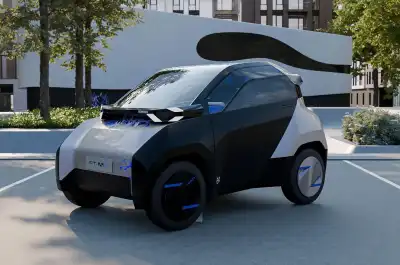One significant barrier to wider adoption of electric vehicles (EVs) is their high initial cost and concerns about rapid depreciation.
However, you might be more inclined to consider an EV if you knew there’s a point at which they become more cost-effective than petrol cars—and then maintain their value just as well.
Valuation experts at cap hpi have determined when electric models become cheaper to buy and depreciate at the same rate as their petrol counterparts.
And it happens sooner than you might expect.
The analysis compared used EV values with equivalent petrol or hybrid models from the same manufacturer across seven scenarios.
We selected models that are similar in size, body type, and power output to ensure accurate comparisons.
Only EVs and petrol/hybrid models that have been on sale simultaneously were included for precision.
Current data shows that electric cars experience most of their depreciation within the first 12 months.
Example 1:
BMW 4 series PETROL
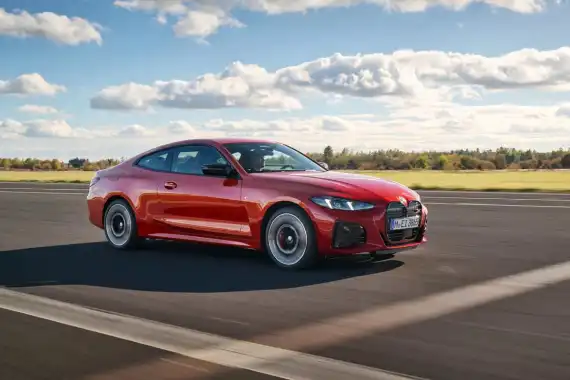
Model: BMW 4 Series Coupe
Year: 2021
Trim: M440i xDrive MHT 2dr Step Auto
Power: 374bhp
Price new: £59,585
Value after 1 year, 10k miles: £43,400 (-27.2% yoy)
Value after 2 years, 20k miles: £38,100 (-12.2% yoy)
value after 3 years, 30k miles: £33,600 (-11.8% yoy)
BMW i4 ELECTRIC
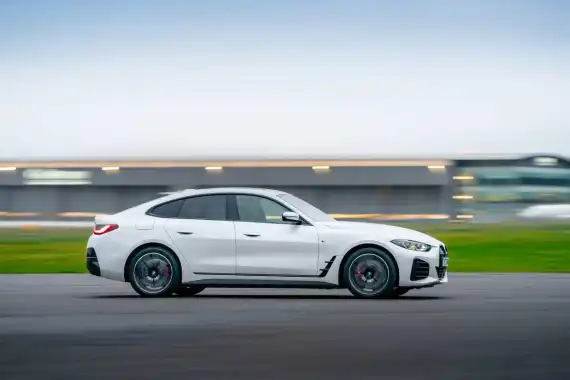
Model: BWM i4
Trim: 250kW eDrive40 M Sport 83.9kWh 5dr Auto
Year: 2021
Power: 340bhp / Range: 357 miles
Price new: £60,215
Value after 1 year, 10k miles: £37,800 (-37.2%)
Value after 2 years, 20k miles: £34,200 (-9.5%)
Value after 3 years, 30k miles: £30,925 (-9.6%)
The first example examines the BMW 4 Series Coupe petrol versus the i4 EV, both launched in 2021. Distinguishing between the two is challenging unless you notice the i4’s green number plate detail and the absence of exhaust pipes, as they are closely related in design.
After the first year, the petrol model depreciated by 27.2%, whereas the i4 EV lost 37.2% of its value. Consequently, a one-year-old i4 costs approximately £5,600 less than a similarly aged M440i petrol model.
However, in the second and third years, the i4 depreciates at a slower rate compared to the petrol version.
Example 2:
Honda Jazz PETROL HYBRID
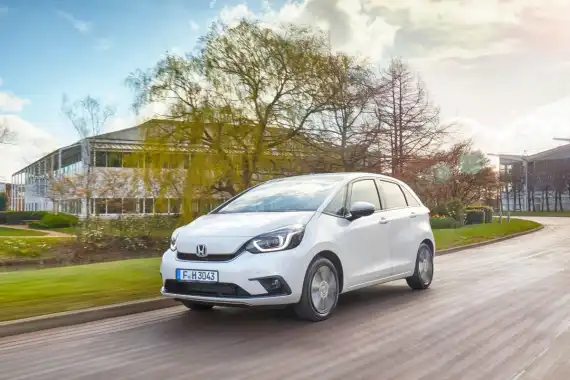
Model: Honda Jazz Hybrid
Trim: 1.5 i-MMD Hybrid EX 5dr eCVT Auto
Year: 2020
Power: 109bhp
Price new: £25,080
Value after 1 year, 10k miles: £18,450 (-26.4% yoy)
Value after 2 years, 20k miles: £17,100 (-7.3% yoy)
Value after 3 years, 30k miles: £15,875 (-7.2% yoy)
Value after 4 years, 40k miles: £14,700 (-7.4% yoy)
HONDA e ELECTRIC
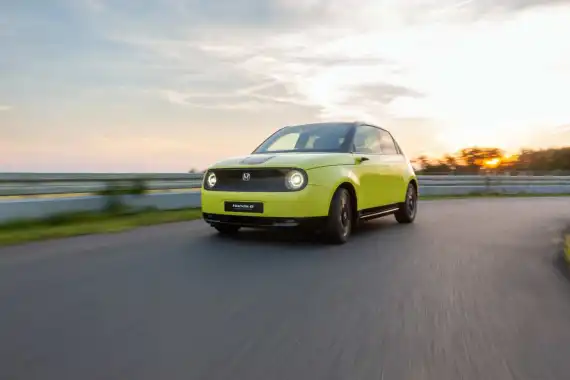
Model: Honda e
Trim: 113kW Advance 36kWh 5dr Auto
Year: 2020
Power: 154bhp / Range: 131 miles
Price new: £37,340
Value after 1 year, 10k miles: £16,500 (-55.8% yoy)
Value after 2 years, 20k miles: £14,750 (-10.6% yoy)
Value after 3 years, 30k miles: £13,225 (-10.3% yoy)
Value after 4 years, 40k miles: £11,825 (-10.6% yoy)
In 2020, Honda offered two small car options: the Jazz hybrid and the Honda e EV. The Honda e was priced £7,000 higher for a similar specification.
By the end of the first year, the Honda e depreciates to a value lower than the Jazz hybrid. Over the next three years, the Jazz hybrid depreciates more slowly. Consequently, at four years old and with 40,000 miles, the Honda e is about £2,800 cheaper than the Jazz hybrid.
Example 3:
KIA Niro HYBRID
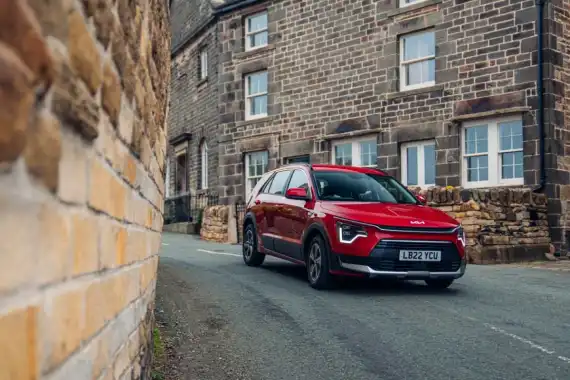
Model: Kia Niro Hybrid
Trim: 1.6 GDi Hybrid 3 5dr DCT Auto
Year: 2020
Power: 139bhp
Price new: £27,890
Value after 1 year, 10k miles: £20,150 (-27.8% yoy)
Value after 2 years, 20k miles: £18,200 (-9.7% yoy)
Value after 3 years, 30k miles: £16,475 (-9.5% yoy)
Value after 4 years, 40k miles: £14,875 (9.7% yoy)
KIA e-Niro ELECTRIC
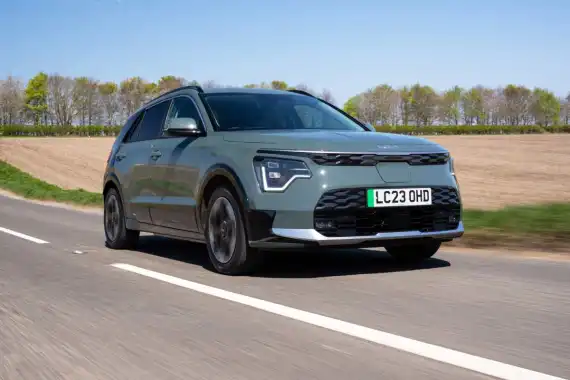
Model: Kia e-Niro
Trim: 150kW 3 64kWh 5dr Auto
Year: 2020
Power: 201bhp / Range: 282 miles
Price new: £37,395
Value after 1 year, 10k miles: £18,150 (-51.5% yoy)
Value after 2 years, 20k miles: £16,150 (-11.0% yoy)
Value after 3 years, 30k miles: £14,850 (-8.0% yoy)
Value after 4 years, 40k miles: £13,225 (-10.9% yoy)
Kia's Niro offers a straightforward comparison with its 2020 lineup, which included a conventional hybrid, a plug-in hybrid, and a fully electric version.
In the first year, the EV lost over 51% of its value, whereas the self-charging hybrid depreciated by only 28%. This means that despite the EV's initial £10,000 premium, it becomes cheaper than the hybrid after one year.
However, depreciation rates vary in subsequent years. According to cap hpi's data from dealer sales and auction prices, the EV's value decreases slightly more in the second and fourth years but less in the third year compared to the hybrid.
Example 4:
Mercedes-Benz GLA PETROL
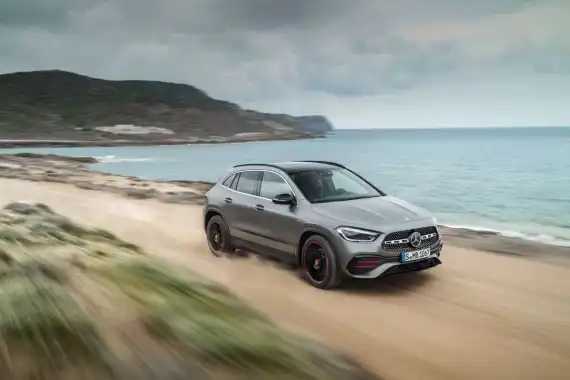
Model: Mercedes-Benz GLA
Trim: GLA 250 AMG Line 5dr Auto
Year: 2022
Power: 224bhp
Price new: £37,305
Value after 1 year, 10k miles: £29,350 (-21.3% yoy)
Value after 2 years, 20k miles: £26,850 (-8.5% yoy)
Mercedes-Benz EQA ELECTRIC
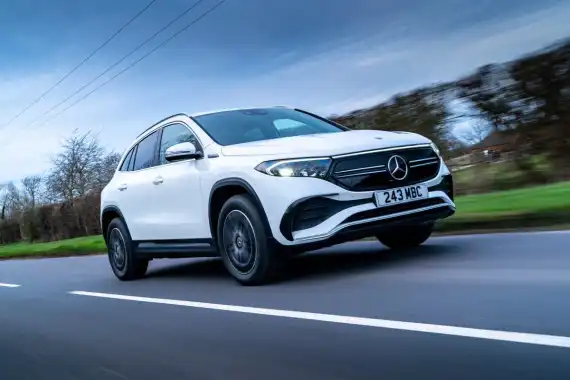
Model: Mercedes-Benz EQA
Trim: EQA 250+ 140kW AMG Line 70.5kWh 5dr Auto
Year: 2022
Power: 190bhp / Range: 331 miles
Price new: £51,995
Value after 1 year, 10k miles: £26,550 (-48.9% yoy)
Value after 2 year, 20k miles: £23,950 (-9.8% yoy)
Since the Mercedes-Benz EQA was introduced in 2021, we've tracked its value retention against the petrol GLA over two years.
In the first year, the GLA depreciated by 21% from its original price of £37,305, while the electric EQA lost 50% of its £52,000 RRP. This makes the EQA the cheaper option as a one-year-old used car.
In the second year, depreciation rates are closer: the petrol GLA loses 8.5% per year, while the EV depreciates by 9.8%.
Example 5:
Skoda Kodiaq PETROL
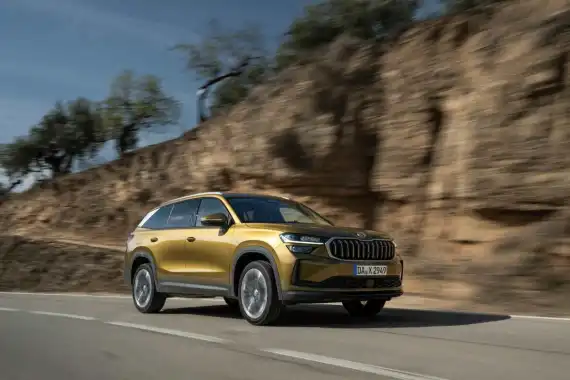
Model: Skoda Kodiaq
Trim: 2.0 TSI 190 Sport Line 4x4 5dr DSG [7 Seat] Auto
Year: 2021
Power: 190bhp
Price new: £43,235
Value after 1 year, 10k miles: £31,800 (-26.4% yoy)
Value after 2 years, 20k miles: £28,750 (-9.6% yoy)
Value after 3 years, 30k miles: £26,025 (-9.5% yoy)
Skoda Enyaq iV ELECTRIC
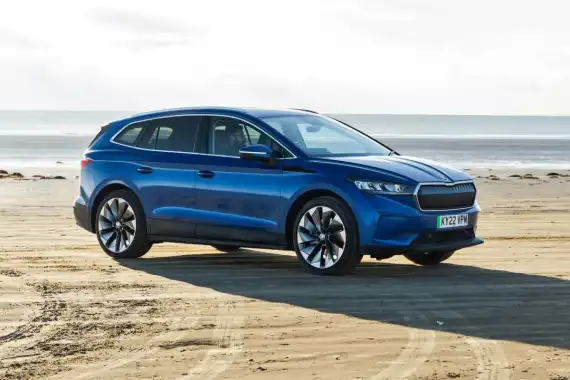
Model: Skoda Enyaq iV
Trim: 150kW 80 Sportline 82kWh 5dr Auto [125kW]
Year: 2021
Power: 204bhp / Range: 324 miles
Price new: £44,465
Value after 1 year, 10k miles: £29,000 (-34.8% yoy)
Value after 2 years, 20k miles: £26,200 (-9.7% yoy)
Value after 3 years, 30k miles: £23,725 (-9.4% yoy)
Comparing Skoda's Kodiaq SUV and the Enyaq iV EV provides a clear analysis of petrol versus electric. These two models have been available in Skoda showrooms for the past three years with similar prices and power outputs.
Interestingly, the Enyaq iV's first-year depreciation is closer to that of the petrol Kodiaq than other examples we've seen. Over the following years, their depreciation rates are nearly identical. Consequently, after three years, the used petrol Kodiaq is only £2,300 more expensive than the Enyaq.
Example 6:
Vauxhall Corsa PETROL
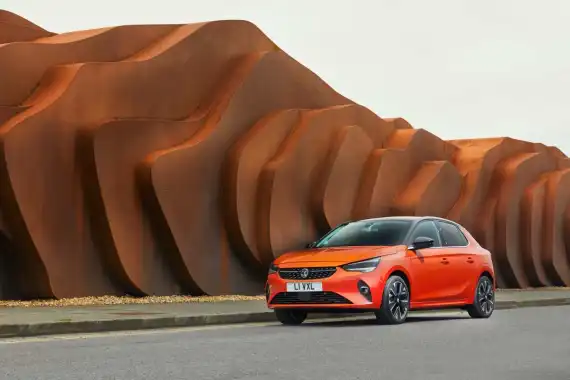
Model: Vauxhall Corsa
Trim: 1.2 Turbo GS Line 5dr Auto
Year: 2022
Power: 130bhp
Price new: £24,220
Value after 1 year, 10k miles: £15,000 (-38.1% yoy)
Value after 2 years, 20k miles: £13,300 (-11.3% yoy)
Vauxhall Corsa e ELECTRIC
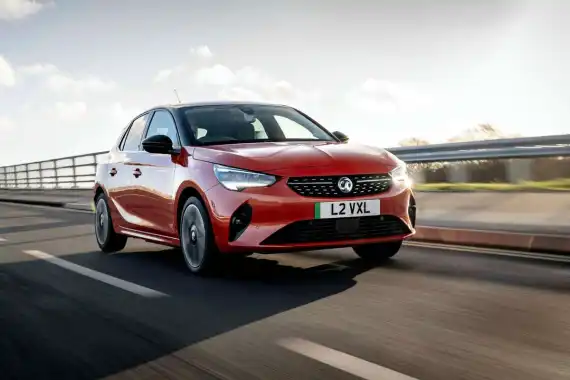
Model: Vauxhall Corsa-e
Trim: 100kW GS Line 50kWh 5dr Auto [11kWCh]
Year: 2022
Power: 136bhp / Range: 222 miles
Price new: £34,025
Value after 1 year, 10k miles: £12,500 (-63.3% yoy)
Value after 2 years, 20k miles: £11,100 (-11.2% yoy)
The Vauxhall Corsa petrol and Corsa-e have a notable price difference, with the EV costing £10,000 more—a substantial premium for a small, affordable car. However, buyers rarely pay the full list price in Vauxhall showrooms.
The Corsa-e's depreciation in the first year is dramatic, dropping by 63%, according to cap hpi. The petrol Corsa also experiences a significant first-year depreciation, losing 38% of its value.
In the second year, the Corsa-e's depreciation slows down and it retains its value slightly better than the petrol model.
Example 7:
Volkswagen Golf PERTOL
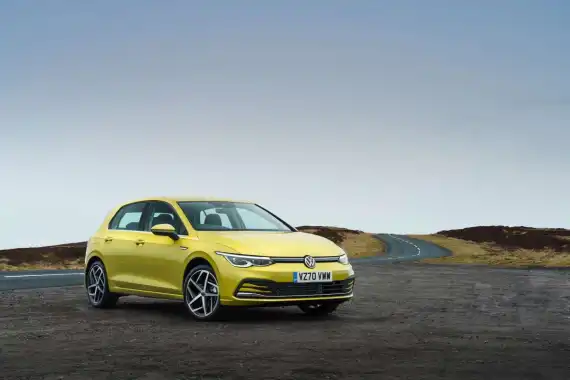
Model: Volkswagen Golf
Trim: 1.5 eTSI 150 Style 5dr DSG Auto
Year: 2021
Power: 150bhp
Price new: £32,915
Value after 1 year, 10k miles: £21,800 (-33.8% yoy)
Value after 2 years, 20k miles: £19,500 (-10.6% yoy)
Value after 2 years, 30k miles: £17,475 (-10.4% yoy)
Volkswagen I.D 3 ELECTRIC
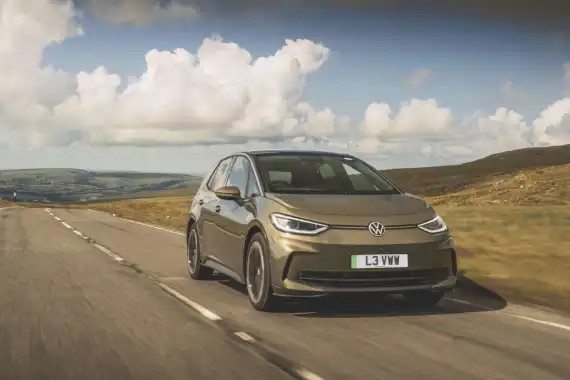
Model: Volkswagen ID.3
Trim: 110kW Style Pure Performance 45kWh 5dr Auto
Year: 2021
Power: 150bhp
Price new: £34,945 / Range: 216 miles
Value after 1 year, 10k miles: £16,800 (-51.9% yoy)
Value after 2 years, 20k miles: £15,150 (-9.8% yoy)
Value after 3 years, 30k miles: £13,750 (-9.2% yoy)
Our final comparison features a popular matchup between VW's iconic Golf and the electric ID.3 from the brand's EV lineup.
The 2021 models in our study have similar list prices, with the ID.3 costing just £2,000 more than the Golf. However, the ID.3 depreciates by 52% in the first year, making a one-year-old ID.3 £5,000 cheaper than a used Golf.
In the second and third years, cap hpi's data shows the ID.3 depreciates more slowly than the Golf. After 36 months, the price difference narrows to £3,725 for cars with the same mileage.

